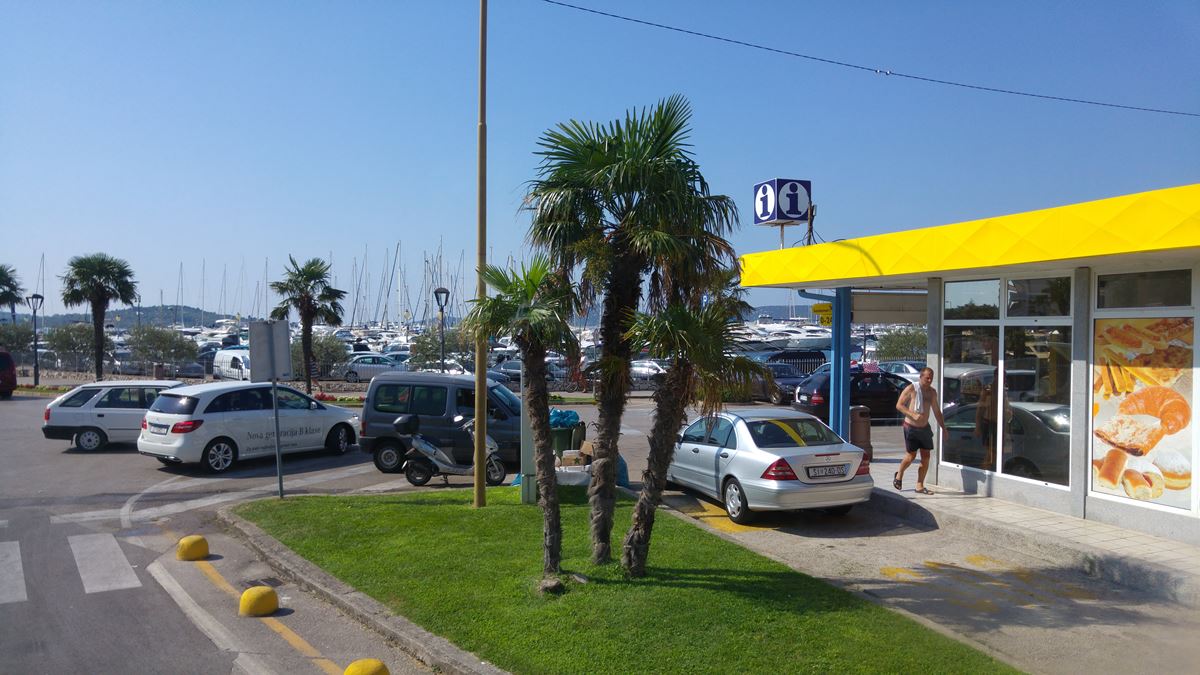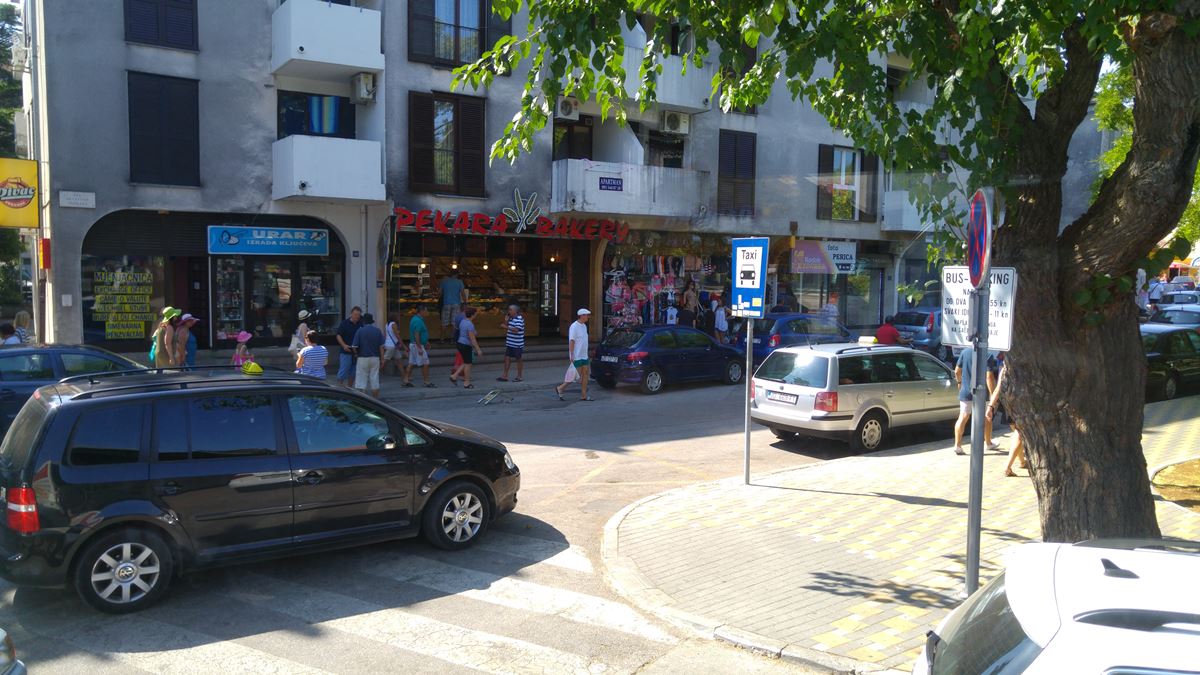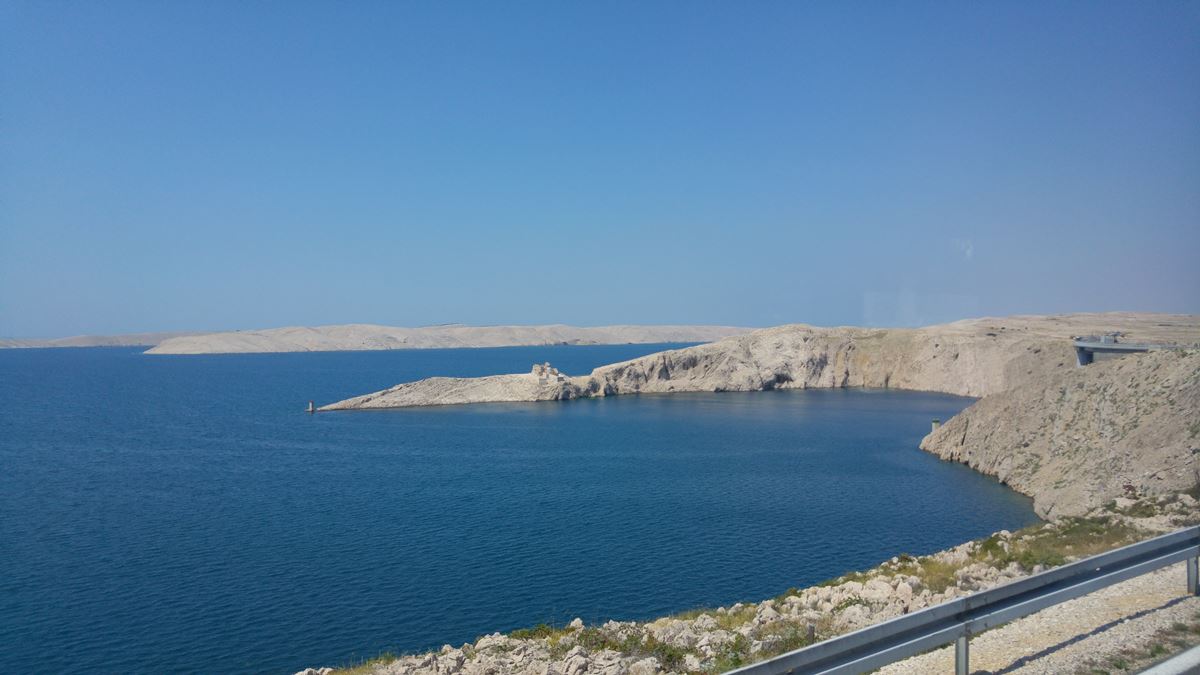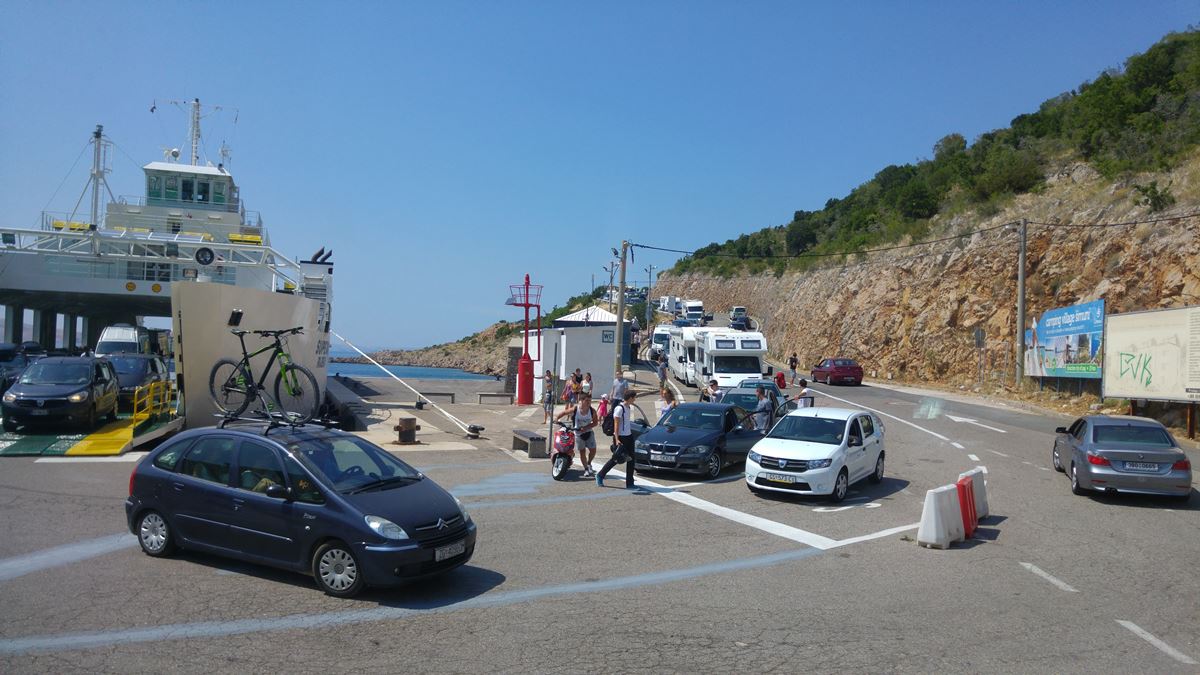Bus trip from Split to Rab
One of the most picturesque bus rides you can take in Croatia is the coastal line from Split to Rijeka; this summer we tested parts of the seasonal line from Autotrans d.o.o which operates from mid-June to mid-September.
Departure time was 07:30 AM from the main bus station in Split, we arrived by the bus 15-20 minutes before the departure. As we already had our tickets we went straight to the bus which was easy to locate knowing the name of the operating bus company, in this case as mentioned Autotrans d.o.o.
As we had luggage for the hold, the first step was to check in our luggage; we showed the driver our online ticket and asked where to place the luggage, the driver checked our tickets to see if we were travelling with him and once that was confirmed he printed stickers which he attached to our suitcases before putting them into the compartment. For the luggage we paid 10 Kuna per piece and received a printed receipt from the driver as a confirmation.
NOTE: Paying for the luggage which goes to the hold of the bus is common practice on intercity bus routes in Croatia. Usually the price is 10 Kuna that we also paid but on international lines to Switzerland, German and Austria luggage fees are normally higher. To our knowledge there are currently only two bus companies which do not charge for the first suitcase for the hold; these are the companies Clissa bus and Crnja Tours.
Once all passengers were loaded, we left the bus station at 07:30 sharp, on the way towards Trogir the second driver went through the bus and checked all tickets and sold tickets to those who did not already have one. Our online ticket was scanned with his handheld device to confirm the validity; they were of course valid and so the machine printed us a “proof ticket” with some legal text on it.
NOTE: For foreigners, it might seem as a harassment from the side of the bus company that tickets have to be in paper form but this is not the case; the problem is the Croatian transportation law which states that passengers have to have a paper ticket with them. In the nearest future this will change, so soon paperless tickets on smart phones and tablets also will be valid as proof.
From Split to Trogir the bus went via Solin where it stops (if there are passengers) at the main road towards Trogir. As scheduled, we arrived at the bus station in Trogir at 08:00, the bus only made a short stop to pick up or offload passengers.
NOTE: The bus station in Trogir is located just next to the bridge towards the old town; the station has 7-8 platforms which are mainly used for the yellow Promet buses operating the local traffic to Ciovo, Split airport and other places nearby. The majority of the intercity buses only has a very short stop at the bus station, some intercity buses do not have licence to stop at the station, they instead stop at the main road approx. 300- 500 meters from the station towards Seget, so if you are staying in that end of town that might be an easier choice.
From Trogir, the bus continued towards north following the coastal road; sitting at the left side of the bus is highly recommendable since the view is simply stunning. The first stop after Trogir was in Marina where the bus stops are located at the main road. From there on it continued to Rogoznica, also here the bus stopped at the main road. NOTE: The majority of intercity buses passing Rogoznica only stops at the main road which is about 1.2 km from the city centre and 1.5 km from Marina Frapa, so pay attention to that when you buy your ticket.
In Primosten the bus went to the bus stop in the centre of town but this is not the case for all buses which drive through Primosten; some stop on the coastal road next to INA gas station (direction south) and on the small bridge when travelling direction north, so also here you should pay attention to the stop from which the bus departs.
From Primosten the bus continued towards Grebastica and Brodarica where the bus stops are located on the coastal road. Also on this part of the trip you have a fantastic view when sitting on the left side of the bus.
On the road between Trogir and Sibenik there was more traffic than usual so when we arrived at the bus station in Sibenik we had a 10 minute delay. Additionally, the bus parked at one of the platforms for a few minutes as several passengers were getting off and others getting on the bus, so when we left the station, with the second driver at the wheel, we were about 15 minutes behind schedule.
NOTE: The bus station in Sibenik is located at the water front in the centre of town. From the station you have about 200 metres to the place from which the ferries depart, 500 metres to the train station in Sibenik and 600 meter walking distance to the UNESCO protected Saint Jacob’s Cathedral and the old town of Sibenik.
Next stop after Sibenik was Vodice where the bus went to the bus station in the centre of town. As you can see on the photo below, the bus station is really small and only intended for a short stop of the bus. NOTE: Some of the buses which travel through Vodice do not stop at the bus station but at stops located on the main road (Close to the INA gas station). The tickets and schedule for these buses are only available online, so to see all long distance buses from Vodice make sure to check the schedule online.
After Vodice the bus continued on the coastal road passing by Tisno, Pirovac, Drage and Pakostane. In all of those cities it stopped at bus stops if there were passengers getting off or passenger waiting at the stop. All the stops at the road pretty much all look like the one on the image below.
NOTE: In Pirovac, Drage and Pakostane the bus stops are on the main coastal road within walking distance from the centre of town, but in Tisno that is not the case. The main road bus stops for Tisno are located about 6 km from the city centre so pay attention to that when you buy a ticket. There are some buses which actually drive to Tisno town but the majority of them do not.
In Biograd na Moru the bus went to the bus station in the centre of town for a short stop. The majority of intercity bus does that but there are a few lines which use only the main road stops located about 1 km from the city centre.
From Biograd we continued towards Zadar passing St. Filip and Jakov, Turanj, St. Petar na moru, Brodarica and Sukosan which all have stops on the coastal road. The bus arrived at the bus station in Zadar 30 minutes later than scheduled due to the heavy traffic on the road. In Zadar the driver informed us that we had time to go to the toilet or stretch our legs before continuing the trip.
NOTE: The bus station in Zadar is actually quite big with about 25-30 platforms as you can see on the photos below. The bus station is located 1.5 km walking distance from the old town; on the main road outside the station you have city buses driving to any part of Zadar. A taxi stand is on the road next to platform number 1.
As we left Zadar towards island Pag, the two drivers again switched places which is quite comforting as a passenger knowing that you have a “fresh” driver in charge of the bus. The trip from Zadar to Pag town took a bit more than one hour. The landscape on this part of the trip is completely different than the landscape we had between Split and Zadar as you can see on the photo here.
In Pag town the bus had a short stop at the bus stop located by the waterfront at the northern end of town. As you can see on the photo below we met one of our partners, Antonio tours, at the stop.
From Pag we drove towards Novalja. On this part of the trip you have a really nice view on town Pag as you can see on this photo which I took from the bus.
In Novalja we stopped at a small bus station located in the outskirts of the town. From the station there is about 1.4 km walking distance to the city centre. If you are heading for the Zrce beach, you should ask the driver on the way to Novalja if he can let you out at the main road stop by Zrce; otherwise you have a 2.2 km walk from the bus station.
From Novalja we continued to the ferry port in Zigljen. This part of the trip also had a very interesting landscape and as we arrived in Zigljen we had to wait 30 minutes for the next ferry to arrive due to our delay.
The ferry ride took about 15 minutes as on all other bus routes which include a ferry crossing. The ticket for the ferry is included in the bus ticket. As we arrived at the Prizna ferry port, we had a total delay of a bit more than an hour. From Prizna we had a steep climb to get to the coastal road but also on this part of the trip the view was excellent. Once back on the coastal road we continued north, the next stop was Jablanac which was where we had to get off the bus to continue our trip to Island Rab.
Conclusion:
The drivers from Autotrans did a really great job, not only were they very polite but they were also really skillful bus drivers, at no point of time you as a passenger felt unsafe.
The trip including the delay took around 8 hours which is a long time to sit in a bus but the scenery really makes it worthwhile.
The bus had a well-functioning air-condition, so you didn’t feel the 35 degrees outside temperature during the trip. The Wi-Fi on the bus also worked quite well on most parts of the trip.






















